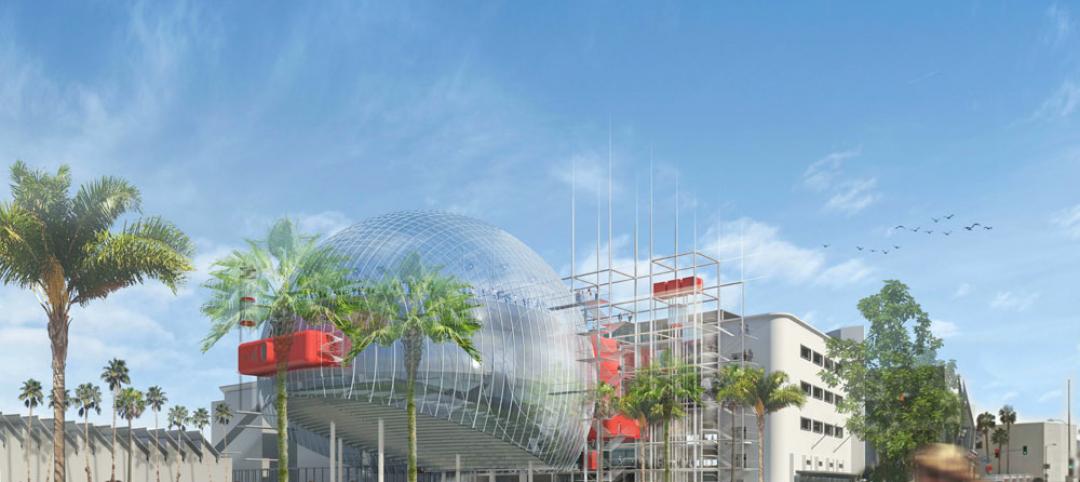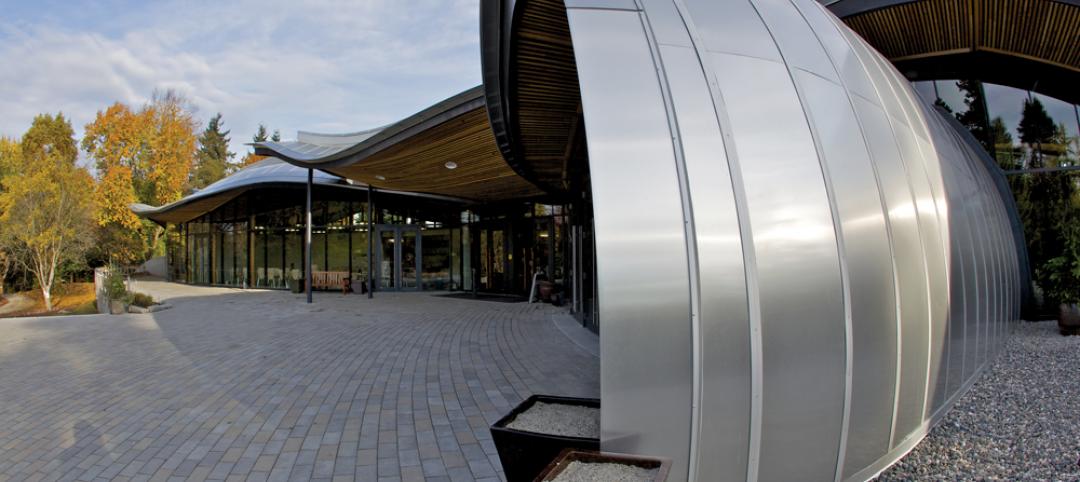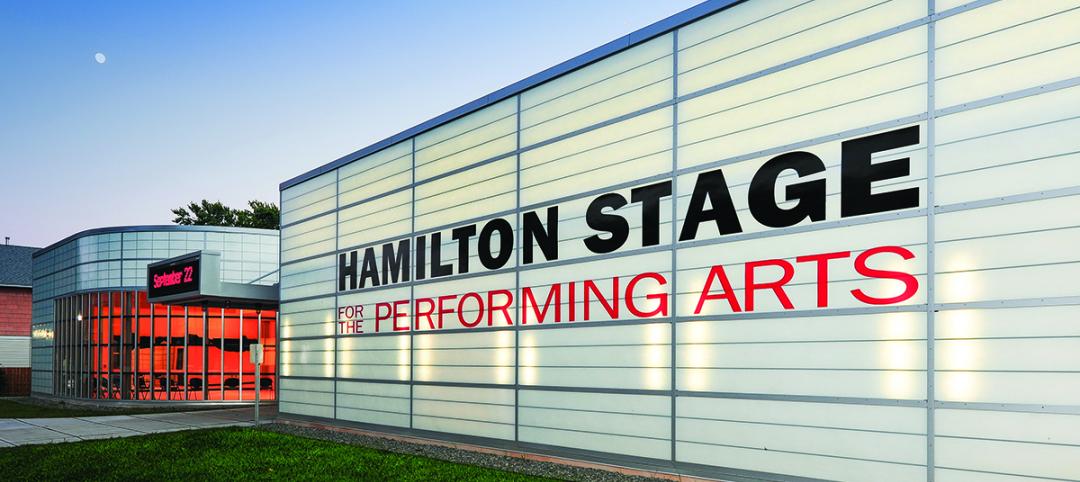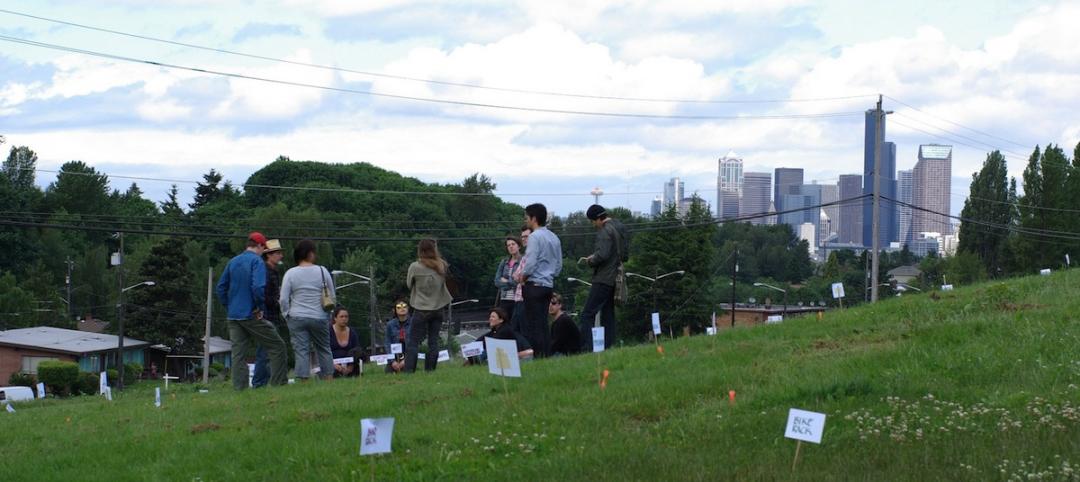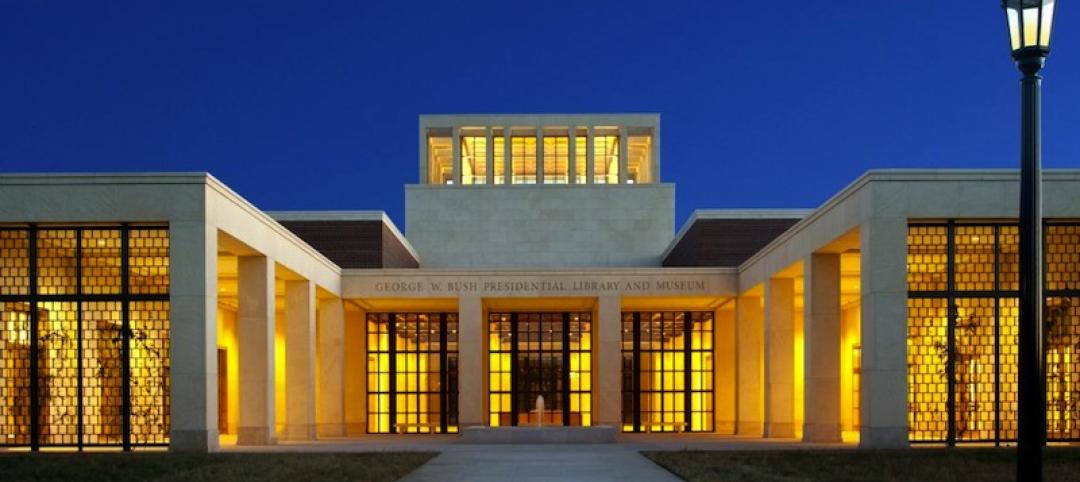Construction spending for education expanded modestly but steadily through March, while at the same time growth for other institutional construction had stalled earlier in 2009.
Education spending is now at or near the peak for this building cycle. The value of education starts is off 9% year-to-date compared to 2008. April starts fell 14% to the lowest total in more than three years. BD+C projects a 3–4% dip in education construction spending into early 2010, and then a recovery by the end of next year, which will bring spending up to early 2009 peak levels. Public education spending is up 6.4% in the past year but spending in the smaller, private sector dropped 0.4%. Funding for private education projects is very sensitive to current economic conditions, specifically tuition payments from current income and investment earnings.
College construction spending is up 12.2% from a year ago, but K-12 spending is up only 3%. Colleges boosted spending for instructional space 20.6% over the past year. Dormitory spending was up only 5%. These increases are the result of the relatively rapid expansion of community colleges and part-time programs for working adults. The small expansion of K-12 construction spending was entirely for high schools, which is up 7.9% over the last year. Middle school construction spending was steady, while elementary spending fell about 3%. These differences mirror enrollment changes. The peak enrollment is now in the 10th grade, which puts more pressure on high schools.
The reason the education construction recession is relatively modest is largely due to nearly $200 billion in state and local government aid included in the stimulus plan. This money is being paid out quickly because it's not linked to specific projects. These new funds offset the huge negative impact of reduced tax receipts in FY 09–10. Without the stimulus funds, a deep recession in public education construction would occur in 2009–10. Instead, most of the recession will be offset, with the balance deferred to 2011–12.
Related Stories
| Apr 19, 2013
Must see: Shell of gutted church on stilts, 40 feet off the ground
Construction crews are going to extremes to save the ornate brick façade of the Provo (Utah) Tabernacle temple, which was ravaged by a fire in December 2010.
| Apr 17, 2013
First look: Renzo Piano's glass-domed motion pictures museum
The Academy of Motion Picture Arts and Sciences last week released preliminary plans for its $300 million Academy of Motion Picture Arts and Sciences museum in Los Angeles, designed by Renzo Piano and local architect Zoltan Pali.
| Apr 16, 2013
5 projects that profited from insulated metal panels
From an orchid-shaped visitor center to California’s largest public works project, each of these projects benefited from IMP technology.
| Apr 12, 2013
Nation's first 'food forest' planned in Seattle
Seattle's Beacon Food Forest project is transforming a seven-acre lot in the city’s Beacon Hill neighborhood into a self-sustaining, edible public park.
| Apr 12, 2013
Chicago rail conversion puts local twist on High Line strategy
Plans are moving forward to convert an unused, century-old Chicago rail artery to a 2.7 mile, 13 acre recreational facility and transit corridor.
| Apr 11, 2013
George W. Bush Presidential Center achieves LEED Platinum certification
The George W. Bush Presidential Center announced today it has earned Platinum certification by the U.S. Green Building Council’s Leadership in Energy and Environmental Design program. The Bush Center is the first presidential library to achieve LEED Platinum certification under New Construction.
| Apr 11, 2013
American Folk Art Museum, opened in 2001, to be demolished
Just 12 years old, the museum designed by Tod Williams and Billie Tsien will be taken down to make way for MoMA expansion.
| Apr 5, 2013
Snøhetta design creates groundbreaking high-tech library for NCSU
The new Hunt Library at North Carolina State University, Raleigh, incorporates advanced building features, including a five-story robotic bookBot automatic retrieval system that holds 2 million volumes in reduced space.



